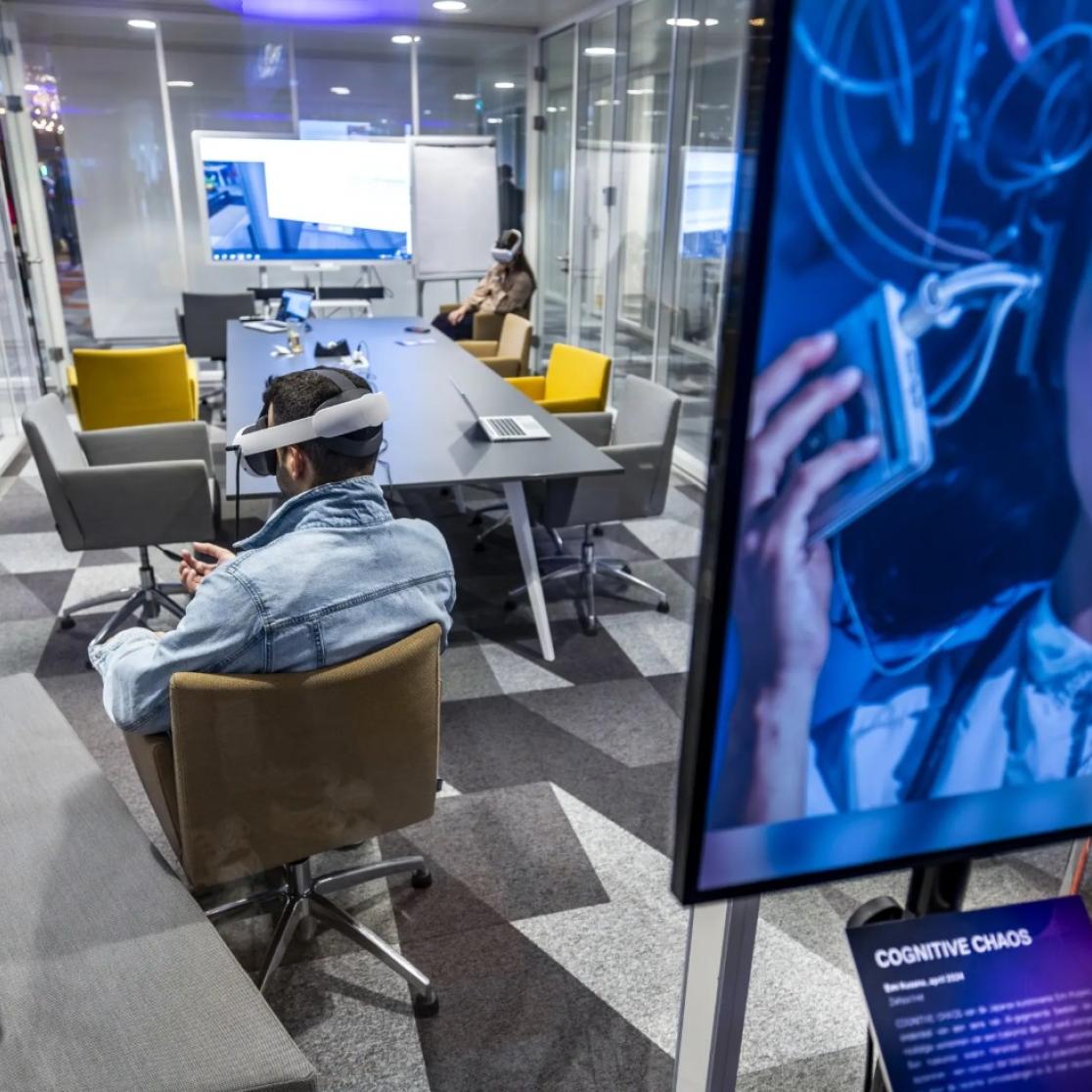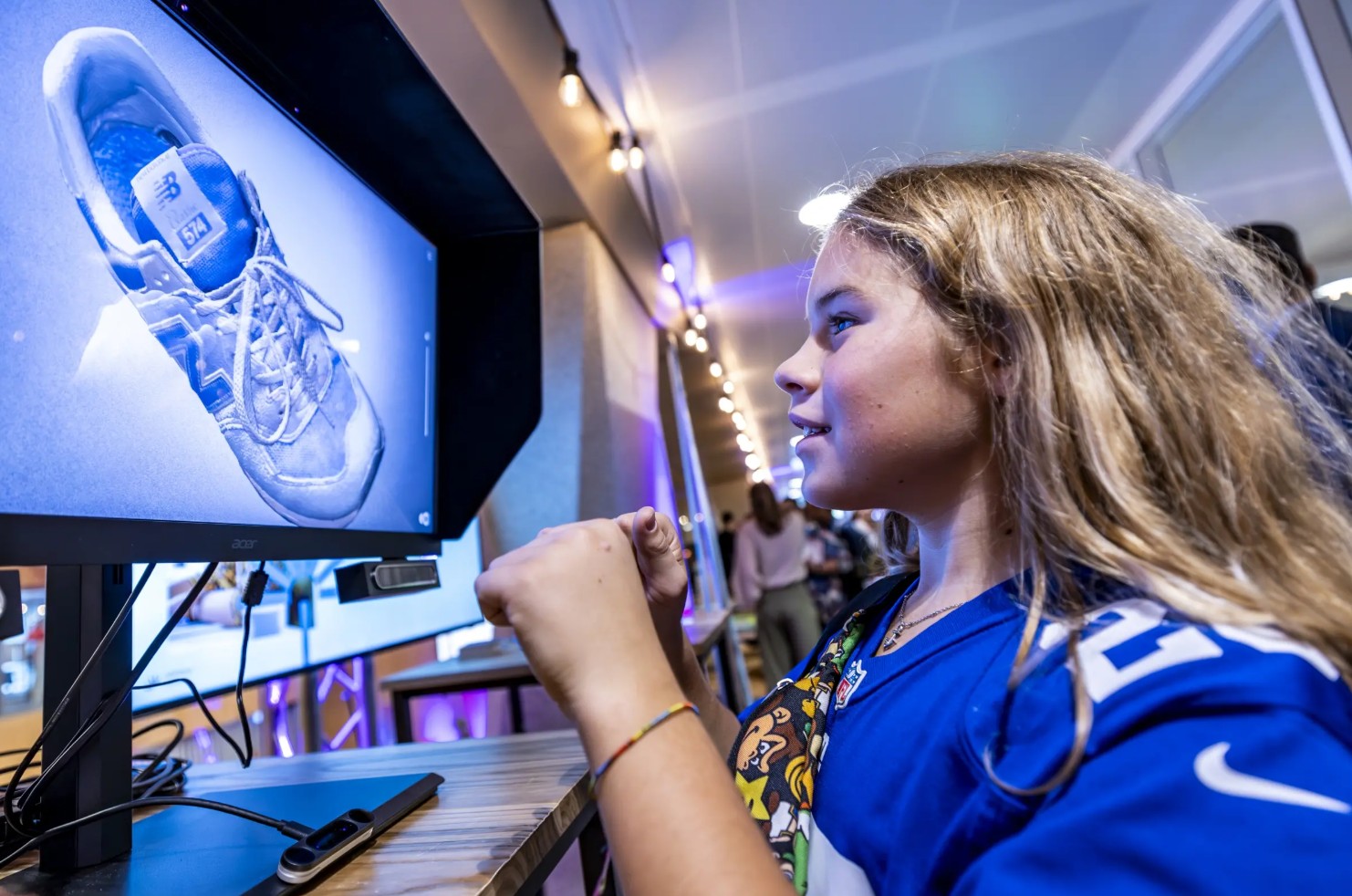AI is listening – and this can save lives
What are the pros and cons of artificial intelligence (AI) and will it actually make the world a better place, or will it have the opposite effect? Will AI help you with your work in the near future? What about the influence of Big Tech? And is AI actually political?
We spoke with Elia Formisano, neuroscientist at Maastricht University and affiliated with BISS at the Brightlands Smart Services Campus. He aims to gain a better understanding of how our brain works and apply AI not only to studying this but also to develop practical applications that can really help people. One example is smart technology that recognises sound: from breaking glass to a crying baby.
AI that can recognise sounds
When Elia starts to talk about his research, I have to move my laptop to another room. They’re cutting down trees outside, and Elia seizes the opportunity to use this as an example to describe the relevance of his work. Training AI systems to recognise sounds isn’t easy, but it is important. “Sound is everywhere,” Elia explained.
Formisano’s team is working on technology that is not only able to classify sound but also describe what is going on. “We’re all familiar with subtitles that read *[music plays]* or *[dog barks]*. This is added manually right now, but imagine a system that can add context, and recognise the sound of a baby crying or a doorbell ringing. This can be very helpful as an application in smart homes, for example, which uses AI to recognise when a glass breaks or a baby starts to cry. The system can alert a parent or caregiver. This is what we’re working towards.”
Your brain in a computer model
Elia Formisano is working on NeuroAI, the field that focuses on building AI models inspired by the working of the human brain. “You can’t understand it until you can imitate it,” Elia says. Step one is to study the brain, which Elia is doing at the Department of Cognitive Neuroscience at Maastricht University. Step two is to develop models that imitate the brain’s functions. This is what MaCSBio (Maastricht Centre for Systems Biology) does. And step three is the application of these models in the “real world.” This happens at BISS (Brightlands Institute for Smart Society) at the Brightlands Smart Services Campus.
For Elia, AI is the ultimate way to better understand the brain. “Using the computer, we try to figure out how the brain processes information such as sound or language by mimicking this in computer models. This teaches us more and more about how our own brains function.” AI enables them to test new insights faster, safer and easier in applications for healthcare or communication, for example. This is called “in silico” testing.

The future of AI
According to Formisano, there are two lines of development in AI. “Robotics is really growing; just take healthcare robots or smart assistants in the home, for example. Language models such as ChatGPT are also experiencing rapid development but do remain limited. The future of AI lies in systems that can actually function in real-world situations. This means models that can recognise sounds in a variety of environments, from hospitals to living rooms. And robots that can recognise sounds and respond to them, although this is only happening to a limited degree right now.”
The text continues below the photo.
“You can’t understand it until you can imitate it”
Elia Formisano
It might seem easy to get AI to do something in a controlled environment, but in real-life situations – settings with noise, unexpected sounds or multiple sound sources – it becomes complex. Elia: “We are have reached the point where we can have AI recognise a single sound, but we have secured a major European grant for our research and our goal is for AI to soon be able to recognise several sounds at once. Just like your brain does, in fact; when you’re on the beach, you can hear the waves, the people as well as the wind, and you can distinguish between them all.”
Is AI a blessing or a curse?
“Every technology comes with risks, but AI is progress,” said Elia. “It helps us better understand the brain, and this is crucial. After all, the better our understanding of the brain, the more we can help people, such as those who are deaf or hard of hearing. Thanks to AI, developments are moving much faster now. We just have to make sure we use it responsibly, and that's up to us.”
Source: Brightlands newsletter
“AI can help us better understand the brain – and this offers a unique opportunity for a neuroscientist like me. However, just like the brain, AI models are complex. When you read about AI, don’t just read the headline, but try to take a closer look. While it does mean progress, there are still limitations.”
Elia FormisanoThis article is part of a series from the AI-hub Brightlands, where experts answer questions about artificial intelligence. This series provides in-depth insights into the impact of AI on various industries, the latest trends, and practical applications of AI technology.
Also read
-
Andrés Caceres Solari on No room for Human Rights in Gaza and Ukraine: How the Law Legitimizes Urban Devastation
Pick Our Brains Session with Andres Caceres Solari

-
AMIBM hosts the final Realise-Bio conference
The Aachen Maastricht Institute of Biobased Materials (AMIBM) hosted last week the third and final Realise-Bio annual conference, bringing together the Dutch and German bioeconomy ecosystems at the Brightlands Chemelot Campus.

-
Macrophages as key to treating liver fibrosis
Sabine Daemen is researching how certain macrophages can slow down fatty liver disease and fibrosis in order to develop new therapies.
